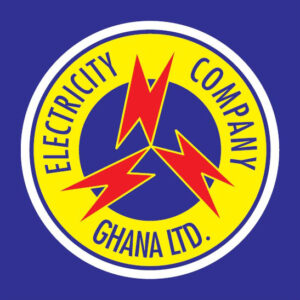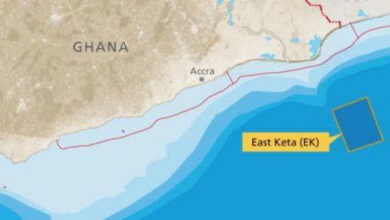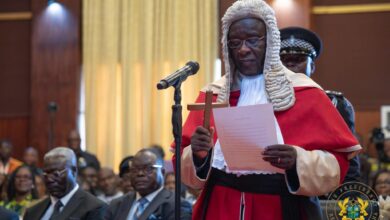TUC and PUWU oppose ECG privatization, demand bold reforms
Source: Abubakar Ibrahim | 18 February 2025 9:01am

The Trades Union Congress (TUC) Ghana and the Public Utility Workers Union (PUWU) have opposed any form of private sector participation in the Electricity Company of Ghana (ECG).
They warned that privatization would not resolve the deep-seated challenges in the energy sector.
The unions contend that political interference, mismanagement, and poor revenue collection—not state ownership—are the real culprits behind ECG’s struggles.
“The problems of ECG are well known, and they are not due to public ownership. They stem from political interference, poor governance, and structural inefficiencies that have been deliberately cultivated over the years,” the TUC and PUWU stated in a firm response to government plans.
The government has initiated steps to introduce private sector involvement in ECG’s operations, citing inefficiencies and financial losses.
On January 24, 2025, a seven-member committee was inaugurated to study potential private-sector participation models.
However, the unions insist that this is merely a pretext for privatization, an approach they believe has consistently failed in Ghana.
“Let’s be clear: private sector participation is just privatization in disguise,” the statement declared.
“We’ve seen this movie before, and we know how it ends—with job losses, higher tariffs, and compromised national interest.”
The Real Problems: Political Interference and Mismanagement
The unions detailed several fundamental issues plaguing ECG.
They pointed to the fact that Ghana’s energy sector has been plagued by politically motivated decisions, ranging from excessive procurement costs to the indiscriminate installation of unregistered meters.
“In just over a decade, ECG has had seven different Managing Directors, each bringing their own political agenda, disrupting strategy, and preventing long-term planning,” they noted.
“Frequent leadership changes weaken the institution, making it impossible to implement any meaningful reforms.”
They also highlighted how political interference in procurement has led to the purchase of substandard equipment, which further undermines ECG’s efficiency.
“How can ECG operate efficiently when political appointees dictate procurement processes, forcing the company to use substandard meters and materials?” the unions questioned.
Furthermore, they criticized the government’s insistence on purchasing electricity generation capacity in dollars while selling electricity in cedis.
“This flawed policy, coupled with erratic tariff adjustments, has created a financial sinkhole for ECG,” they added.
The Privatization Myth
Drawing on Ghana’s history, the TUC and PUWU argued that privatization has never yielded the promised benefits.
They cited examples such as the failed Power Distribution Services (PDS) deal in 2019 and the privatisation of Ghana Water Limited, which led to worsened service quality and was ultimately reversed.
“When Ghana Water Limited was handed over to Aqua Vitens Rand Water Limited in 2006, the result was disastrous. Service delivery deteriorated so badly that the contract had to be terminated in 2011. We will not sit back and watch the same happen to ECG,” the statement said.
The unions also referenced the case of Ghana Telecom, which was sold to Vodafone in 2008. “Vodafone paid $1 billion for Ghana Telecom, yet in just a few years, they had repatriated five times that amount in profits while cutting thousands of jobs. Who really benefited?”
They warned that ECG’s privatisation would result in massive job losses and the repatriation of billions in revenue.
“If we allow a foreign entity to take over ECG, billions of cedis that should be reinvested in Ghana will be sent abroad as profits. How does that benefit Ghanaians?”
The Way Forward: Reform, Not Privatisation
Rather than privatisation, the TUC and PUWU proposed strategic reforms, including an independent, stakeholder-driven board for ECG, depoliticisation of management appointments, and stronger regulatory oversight.
“We need reforms, not privatization. We need leadership stability at ECG. We need procurement processes that prioritize efficiency over political patronage. And most importantly, we need to protect ECG as a national asset for future generations,” they asserted.
The unions called for a more transparent and accountable energy sector governance framework.
“If we don’t stop political interference in ECG, no amount of privatization will fix the problems. The government must focus on real solutions, not shortcuts that benefit a few at the nation’s expense.”
A National Asset Worth Protecting
Concluding their position, the TUC and PUWU reaffirmed their commitment to resisting any form of privatisation of ECG.
“We are ready to engage the government in constructive dialogue, but we will not accept any move that puts ECG in private hands. The energy sector is too critical to be sacrificed on the altar of short-term financial gains.”
They urged all Ghanaians to stand with them in defending ECG as a public entity.
“ECG is a national asset. Its problems can be fixed with the right leadership and policies. Let’s not sell our future to private interests.”




